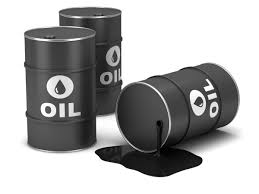Stories by Adewale Sanyaolu
Anywhere in the world, Oil Gas Free Zones (OGFZ) offer undoubted advantages and incentives to foreign companies to invest, and Nigeria can’t be the exception.
The need to have a robust system to aid the ease of doing business while promoting the concept of Foreign Direct Investment (FDI), may have informed the decision of the Federal Government to think in that direction.
But beyond FDI, the urgency to grow the oil and gas sector through the acquisition of knowledge and skills is equally a factor in this regard as investing companies are expected to transfer knowledge in a bid to improve on the country’s local capacity and competency.
Currently, the attraction of these companies into the zone with investment portfolio of about $20 billion has brought about an increase in investment inflow into Nigeria and created over 100,000 direct and indirect jobs
How it all started
During the 1980s, several studies were undertaken by the Federal Government, designed to define policy towards identifying areas or regions where companies are taxed lightly or not at all; free of customs or possess favourable custom regulations in a bid to encourage development and foreign investment.
In Nigeria, continuation of this global strategy and the comparative advantage principles in the oil and gas, which has elicited enormous contribution to its National economy as it has accounted for 90 percent total export and 80 percent of government revenue overtime.
It is also on record, Nigeria is the biggest producer of oil and gas products in the sub-Saharan African region. Its reserves have proven to be the largest in the area and are strategically located in the middle of the region.
And to bring all these potential to fruition, the Nigerian Government decided to establish Oil Gas Free Zone Authority (OGFZA), through the promulgation of Decree No, 8 of March 29, 1996. This Act form the Authority as a parastatal and regulatory agency in charge, and with responsibility of attracting Foreign Direct Investment (FDI) into the country as it relates to Oil and Gas and other hydro carbon. The Authority is also responsible for registering, licensing and regulating Oil & Gas Free Zones in Nigeria.
The move by government to have OGFZA as a regulator resulted in the birth of many entities now operating in these OGFZs and leveraging on their wide range of opportunities and incentives created by the Nigerian government.
This stride is as a result of the successes recorded at Onne, in tems of driving FDI, revenue generation, sill/technology transfer.
Why free zone?
A Free Zone is a specially designated enclave, clearly delineated and administratively considered to be outside the customs territory of the host country, having special regulatory and fiscal incentive regimes to enhance its competitiveness. It operates against the background of highly efficient infrastructural facilities, less bureaucracy and streamlined One-Stop-Shop operational procedures.
Against the backdrop of depleting natural resources, governments the world over are increasingly identifying Free Zones as a veritable tool to fast track industrialization and for sustainable economic development. The reason for this is not farfetched. Investors all over the world are looking for jurisdictions where they would save cost and maximize returns on investment. The Free Zone offers this opportunity as it has been identified as investors’ haven with attractive incentives and enabling environment.
Requirements for registration in OGFZ
The requirements for registration in an OGFZ is divided into two; Nigerian registered companies and offshore companies
Nigerian Registered Companies
•DPR certificate for non-oil producing companies & LNGs, certificate of incorporation, memorandum and articles of association, company profile, contact person, designation, phone numbers and Address of company, report of the feasibility studies of the intended Investment in the zone (Business Plan), financial profile & personnel profile, sources of funding (Local & Foreign)
•Companies last three years Audited account (Not applicable to Companies less than one year in operation)
Offshore Companies
•Certificate of Incorporation or Notarised Copy of Overseas Incorporation, memorandum and articles of association, company profile, contact person, designation, phone numbers and address of company, report of the feasibility studies of the intended investment in the zone (Business Plan), financial Profile and personnel profile, Sources of funding
•Companies last three years audited account (Not applicable to companies less than one year in operation)
•Affidavit issued by a notary Public that the entity is an oil and gas related company.
•Official confirmation from NPA/terminal operator of facilities
Benefits for investors
•Tax Incentives
•Direct access to sea and same-day turnaround of supply vessels operation.
•Single-point responsibility and vessel operations, cargo handling, warehousing, personnel, agency etc, Production in handling operations, no double handling.
•Increased efficiency in exploration and production activities with better project co-ordination and management.
•Ability to share both facilities and services.
•Access to major projects (onshore, offshore, ultra-deep and entire sub-Saharan West African Region).
•Long-term objectives for export oriented projects.
•Investment opportunities in upstream and downstream.
•Nigeria occupies a strategic position in Africa and globally, due to its abundant human and raw materials base, in addition to its highly untapped investment opportunities.
•OGFZs offer highly competitive range of tax concessions plus other investment incentives including minimal bureaucracy, to ease flow of business.
Oil & Gas Free Zones in Nigeria, some are now the largest and fastest growing oil & gas transit and supply base in the world today.
West Africa is now experiencing unprecedented growth in recent times fuelled by developments in the energy sector. International companies are attracted to the region.
In the OGFZs, the window of opportunity is open now and companies will need to be in position early to take advantage of any further future growth.

